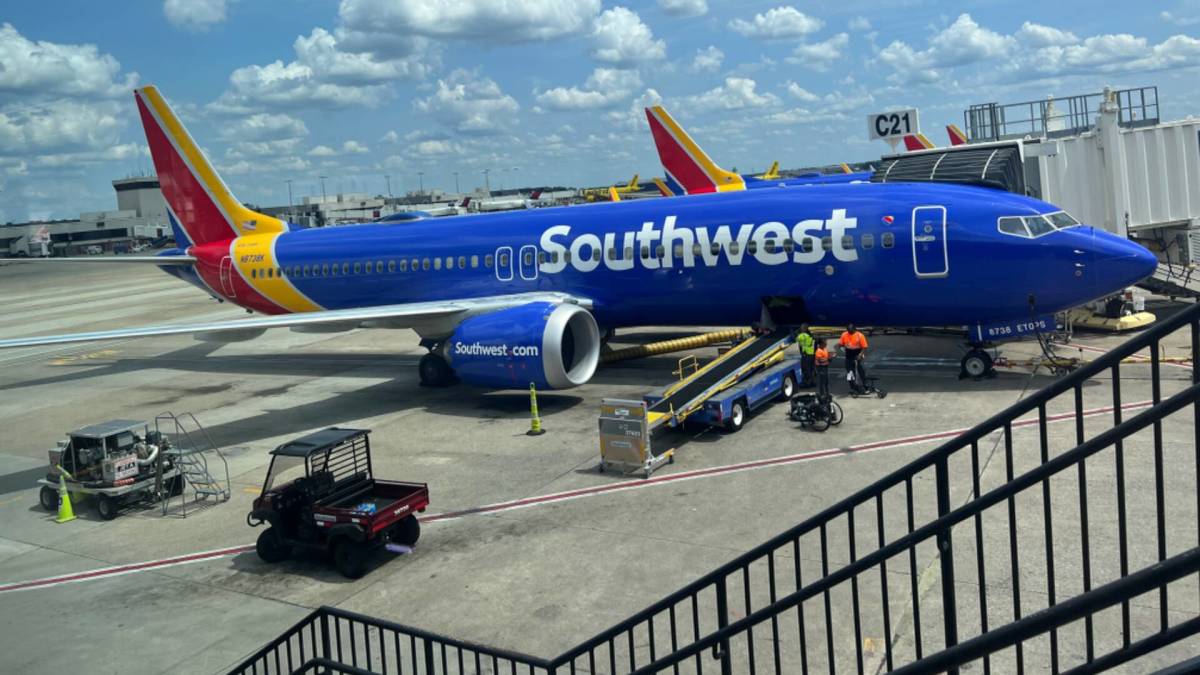
For generations, Dallas-based Southwest Airlines (LUV) has stood out from other airlines by not assigning seats but letting travelers board in groups and then choose from whatever is available.
The feature is so iconic that one Delta (DAL) flight attendant once went TikTok viral for exclaiming "this isn't Southwest!" when passengers kept moving around the cabin and switching seats.
Related: I just flew Southwest for the first time ever — here is what it was like
However, while open seating earned Southwest the loyalty of many travelers, it has also cost the airline profits, given that seat selection is a profit stream that many carriers rely on. Amid a string of worse-than-expected earnings reports, chief executive Bob Jordan previously said that the airline was "exploring new initiatives" and changes to "the way we seat and the way we board our aircraft."
'Southwest expects to broaden its appeal and attract more flying'
On July 25, Southwest released a second-quarter earnings report showing that revenue fell by 46% to $367 million, while nonfuel expenses are expected to rise a further 13% by the end of the year. In a statement, Jordan said that "urgent and deliberate steps" were needed to increase profits and one such change is the introduction of premium seating.
More on travel:
- Another National Park just made it more difficult for you to visit
- Delta Air Lines makes a baggage change that travelers will like
- United Airlines passenger incident triggers quick response
While Southwest is not yet releasing the details of what this would look like or how much it would cost, the general concept is paying extra for assigned seating. Jordan said that Southwest executives will be meeting to discuss the details further in September. The biggest remaining question is whether the open seating plan will remain after those with assigned seats have boarded or whether the system will be replaced entirely.
"The research is clear and indicates that 80% of Southwest customers, and 86% of potential customers, prefer an assigned seat," Southwest said in a statement. "By moving to an assigned seating model, Southwest expects to broaden its appeal and attract more flying from its current and future customers."
Related: Get the best cruise tips, deals, and news on the ships from our expert cruiser
Here are the other changes Southwest plans to make (and how they affect travelers)
Other changes announced by Southwest include the introduction of its first red-eye flights. The airline has, for years, flown exclusively during daytime hours but has hinted that it was looking to launch routes in which one can board at night and arrive the next day. The new routes will start running from Las Vegas to Baltimore and Orlando, Los Angeles to Baltimore and Nashville and Phoenix to Baltimore starting on Feb. 14, 2025.
For those questioning whether to book an assigned seat, Southwest said that it also plans to offer spaces with additional legroom — the airline expects one third of cabins on new or retrofitted planes to feature seats with more space to stretch out.
All of this represents a massive change to how Southwest formerly conducted business, which may leave some who are used to the old system unhappy, but, according to Jordan, it will help the airline return to profit.
"Although our unique open seating model has been a part of Southwest Airlines since our inception, our thoughtful and extensive research makes it clear this is the right choice — at the right time — for our Customers, our People, and our Shareholders," Jordan said.
Related: Veteran fund manager picks favorite stocks for 2024







